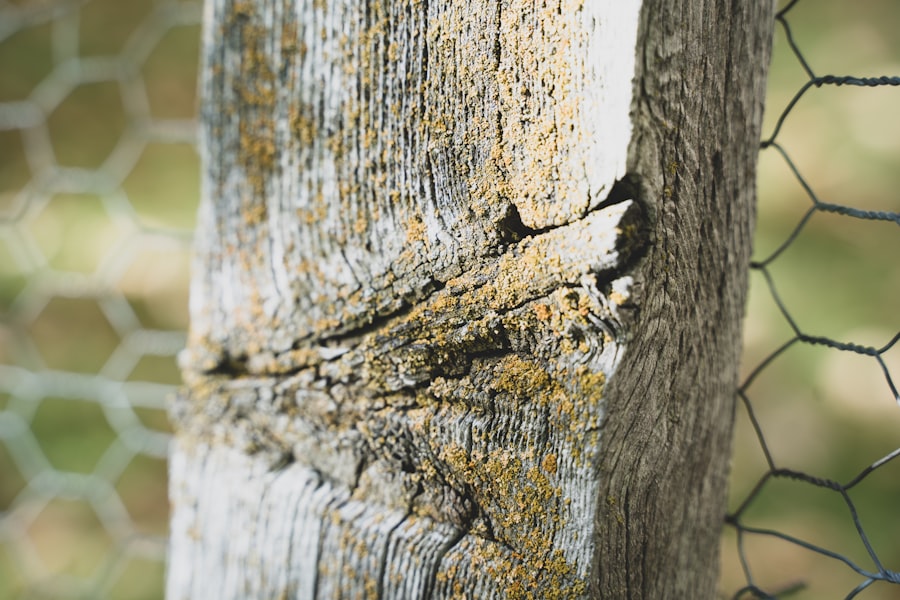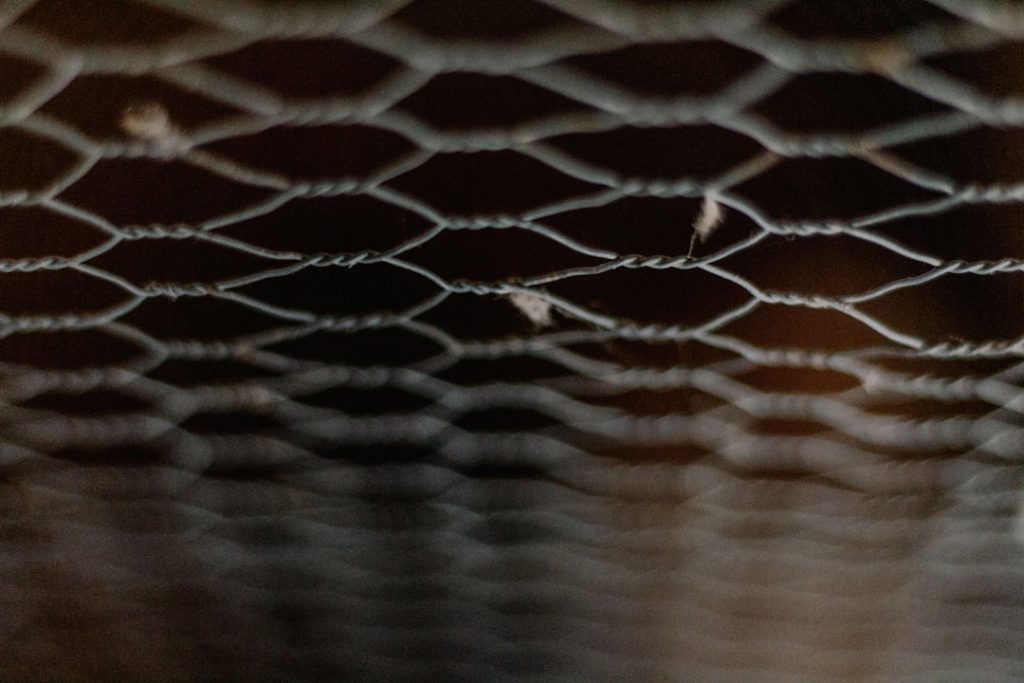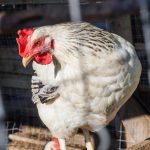Chickens are naturally attracted to raised beds due to several factors related to their instinctive behaviors and needs. Raised beds provide an elevated position that offers chickens a sense of security and a good vantage point to observe their surroundings. This height advantage makes raised beds appealing locations for roosting, nesting, and scanning for potential food sources.
The loose soil typically found in raised beds is ideal for chickens to engage in scratching and dust bathing, which are essential activities for maintaining their health and hygiene. These behaviors help chickens keep their feathers clean and control parasites. Additionally, the plants and vegetables grown in raised beds present an attractive food source for chickens.
They are drawn to the fresh greens and the insects that inhabit these areas, making raised beds prime foraging locations. Understanding these natural inclinations of chickens is crucial for developing effective strategies to prevent them from damaging raised beds and the plants within them. Gardeners and chicken keepers must consider these factors when designing and protecting their raised bed gardens.
Table of Contents
- 1 Creating Physical Barriers: Fencing and Netting
- 2 Using Natural Deterrents: Plants and Scents
- 3 Implementing Visual Deterrents: Scarecrows and Reflective Objects
- 4 Providing Alternative Spaces: Designating a Chicken-Friendly Area
- 5 Consistent Maintenance: Regularly Checking and Repairing the Raised Beds
- 6 Seeking Professional Help: Consulting with a Chicken Expert
- 7 FAQs
- 7.1 What are some effective methods for keeping chickens out of raised beds?
- 7.2 Why is it important to keep chickens out of raised beds?
- 7.3 Are there any plants that can help repel chickens from raised beds?
- 7.4 What are some common mistakes to avoid when trying to keep chickens out of raised beds?
- 7.5 How can I train my chickens to stay out of the raised beds?
Key Takeaways
- Chickens are attracted to raised beds because they provide a safe and elevated space for them to forage and roost.
- Fencing and netting can be effective physical barriers to keep chickens out of raised beds.
- Planting strong-smelling herbs and using natural scents like citrus can deter chickens from entering raised beds.
- Scarecrows and reflective objects can be used as visual deterrents to scare chickens away from raised beds.
- Designating a separate area specifically for chickens to forage and roam can help keep them away from raised beds.
Creating Physical Barriers: Fencing and Netting
Physical Barriers: A Simple yet Effective Solution
One effective way to deter chickens from accessing raised beds is by installing physical barriers such as fencing and netting. Chicken wire or hardware cloth can be used to create a protective barrier around the perimeter of the raised beds, preventing chickens from gaining access. It is important to bury the fencing at least 6 inches into the ground to prevent chickens from digging underneath it.
Covering the Top: An Additional Deterrent
Additionally, covering the top of the raised beds with netting or bird mesh can further discourage chickens from landing or roosting on the beds. This physical barrier not only prevents chickens from causing damage to the plants but also protects them from potential harm caused by scratching and pecking.
Benefits of Physical Barriers
These physical barriers not only safeguard the plants from damage but also protect the chickens from potential harm caused by their natural behaviors. By installing fencing and netting around and on top of the raised beds, you can create a safe and secure environment for both your plants and chickens.
Using Natural Deterrents: Plants and Scents

Incorporating natural deterrents such as certain plants and scents can help discourage chickens from venturing into raised beds. Planting aromatic herbs like lavender, mint, or rosemary around the perimeter of the raised beds can emit fragrances that are unpleasant to chickens, deterring them from approaching. Additionally, scattering citrus peels or using citrus-based sprays can also repel chickens due to their aversion to citrus scents.
Another effective natural deterrent is the use of predator urine or feces, which can be purchased from garden supply stores. The scent of predator urine signals danger to chickens, prompting them to steer clear of the area. By utilizing these natural deterrents, it is possible to create an environment that is unappealing to chickens without causing them any harm.
Natural deterrents such as specific plants and scents can be employed to dissuade chickens from entering raised beds. Planting aromatic herbs like lavender, mint, or rosemary around the perimeter of the raised beds can emit odors that are displeasing to chickens, deterring them from approaching. Furthermore, scattering citrus peels or utilizing citrus-based sprays can also discourage chickens due to their dislike for citrus scents.
Another effective natural deterrent is the use of predator urine or feces, which can be obtained from garden supply stores. The scent of predator urine signals danger to chickens, prompting them to avoid the area. By incorporating these natural deterrents, it is possible to create an environment that is unattractive to chickens without causing them any harm.
Implementing Visual Deterrents: Scarecrows and Reflective Objects
Visual deterrents such as scarecrows and reflective objects can be effective in deterring chickens from approaching raised beds. Scarecrows can be strategically placed near the raised beds to create a visual deterrent that mimics a human presence, discouraging chickens from venturing too close. Additionally, hanging reflective objects like old CDs or aluminum foil strips around the perimeter of the raised beds can create flashes of light and movement that startle and deter chickens.
These visual deterrents disrupt the comfort and security that chickens seek, making them less likely to approach the raised beds and cause damage. Scarecrows and reflective objects serve as visual deterrents that can effectively discourage chickens from approaching raised beds. Scarecrows can be strategically positioned near the raised beds to create a visual deterrent that simulates a human presence, dissuading chickens from getting too close.
Moreover, hanging reflective objects such as old CDs or aluminum foil strips around the perimeter of the raised beds can produce flashes of light and movement that startle and deter chickens. These visual deterrents disrupt the comfort and security that chickens seek, making them less inclined to approach the raised beds and cause harm.
Providing Alternative Spaces: Designating a Chicken-Friendly Area
Designating a specific area in the yard as a chicken-friendly space can help redirect their attention away from raised beds. By providing chickens with their own designated area equipped with suitable scratching materials, dust bathing spots, and access to food and water, they are less likely to seek out raised beds for these activities. This designated space can be enclosed with fencing or netting to ensure that chickens remain within their designated area while keeping them away from the raised beds.
By offering an alternative space that meets their natural needs, chickens are less likely to cause damage to raised beds out of necessity. Allocating a designated area in the yard as a chicken-friendly space can help divert their focus away from raised beds. By providing chickens with their own designated area equipped with appropriate scratching materials, dust bathing spots, and access to food and water, they are less inclined to seek out raised beds for these activities.
This designated space can be enclosed with fencing or netting to ensure that chickens remain within their designated area while staying away from the raised beds. By providing an alternative space that fulfills their natural needs, chickens are less likely to cause harm to raised beds out of necessity.
Consistent Maintenance: Regularly Checking and Repairing the Raised Beds

Inspecting Perimeter Fencing and Netting
Regularly checking the condition of raised beds is essential in deterring chickens from causing damage. Inspecting the perimeter fencing or netting for any signs of wear or damage is crucial in ensuring that it remains effective in keeping chickens out. Any holes or gaps should be promptly repaired to prevent chickens from gaining access.
Removing Attractants
Additionally, removing any fallen fruits or vegetables from the raised beds can eliminate potential attractions for chickens. By consistently maintaining the raised beds and addressing any issues promptly, it becomes less inviting for chickens to explore and forage in these areas.
Consistent Maintenance is Key
Regular inspection of the perimeter fencing or netting for any signs of wear or damage is essential in ensuring its effectiveness in keeping chickens out. Any holes or gaps should be promptly repaired to prevent chickens from gaining access. Furthermore, removing any fallen fruits or vegetables from the raised beds can eliminate potential attractions for chickens. By consistently maintaining the raised beds and addressing any issues promptly, it becomes less appealing for chickens to explore and forage in these areas.
Seeking Professional Help: Consulting with a Chicken Expert
In cases where chicken deterrence measures prove ineffective or challenging to implement, seeking professional help from a chicken expert or animal behaviorist may be necessary. These professionals can provide valuable insights into understanding chicken behavior and offer tailored solutions for deterring them from raised beds. They may also assess the overall environment and provide recommendations on improving chicken management practices to minimize their impact on raised beds.
By consulting with a chicken expert, homeowners can gain a deeper understanding of effective strategies for managing chicken behavior and protecting their raised beds. When chicken deterrence measures prove ineffective or challenging to implement, seeking professional help from a chicken expert or animal behaviorist may be necessary. These professionals can offer valuable insights into understanding chicken behavior and provide customized solutions for deterring them from raised beds.
They may also evaluate the overall environment and offer recommendations on enhancing chicken management practices to minimize their impact on raised beds. By consulting with a chicken expert, homeowners can gain a deeper understanding of effective strategies for managing chicken behavior and safeguarding their raised beds. In conclusion, understanding why chickens are attracted to raised beds is crucial in devising effective strategies for deterring them from causing damage.
By implementing physical barriers such as fencing and netting, utilizing natural deterrents like plants and scents, incorporating visual deterrents such as scarecrows and reflective objects, providing alternative spaces for chickens, consistently maintaining raised beds, and seeking professional help when needed, homeowners can effectively protect their raised beds from chicken-related damage while ensuring the well-being of both plants and poultry.
If you’re looking for more information on keeping chickens, you might be interested in this article on Snaplock Chicken Coop. It provides tips and advice on how to properly house and care for your chickens, which can be helpful in keeping them out of your raised bed garden.
FAQs
What are some effective methods for keeping chickens out of raised beds?
Some effective methods for keeping chickens out of raised beds include using physical barriers such as chicken wire or fencing, using natural deterrents like citrus peels or coffee grounds, and providing alternative areas for the chickens to forage.
Why is it important to keep chickens out of raised beds?
It is important to keep chickens out of raised beds to protect the plants and soil from being damaged by scratching, pecking, and droppings. Additionally, keeping chickens out of raised beds can help maintain a clean and organized garden space.
Are there any plants that can help repel chickens from raised beds?
Yes, there are certain plants that can help repel chickens from raised beds, such as marigolds, lavender, and rosemary. These plants have strong scents that chickens may find unpleasant, deterring them from entering the raised beds.
What are some common mistakes to avoid when trying to keep chickens out of raised beds?
Some common mistakes to avoid when trying to keep chickens out of raised beds include using flimsy or ineffective barriers, not providing alternative foraging areas for the chickens, and using harmful chemicals or substances that could be harmful to the chickens or the plants.
How can I train my chickens to stay out of the raised beds?
Training chickens to stay out of raised beds can be done by consistently redirecting them to designated foraging areas, using positive reinforcement such as treats, and providing plenty of space and enrichment in their designated areas to discourage them from venturing into the raised beds.
Meet Walter, the feathered-friend fanatic of Florida! Nestled in the sunshine state, Walter struts through life with his feathered companions, clucking his way to happiness. With a coop that’s fancier than a five-star hotel, he’s the Don Juan of the chicken world. When he’s not teaching his hens to do the cha-cha, you’ll find him in a heated debate with his prized rooster, Sir Clucks-a-Lot. Walter’s poultry passion is no yolk; he’s the sunny-side-up guy you never knew you needed in your flock of friends!







